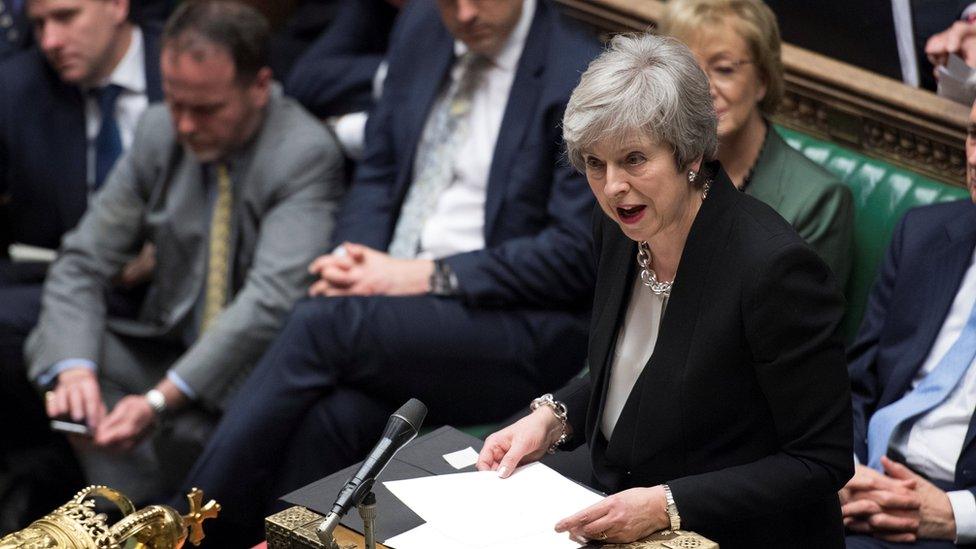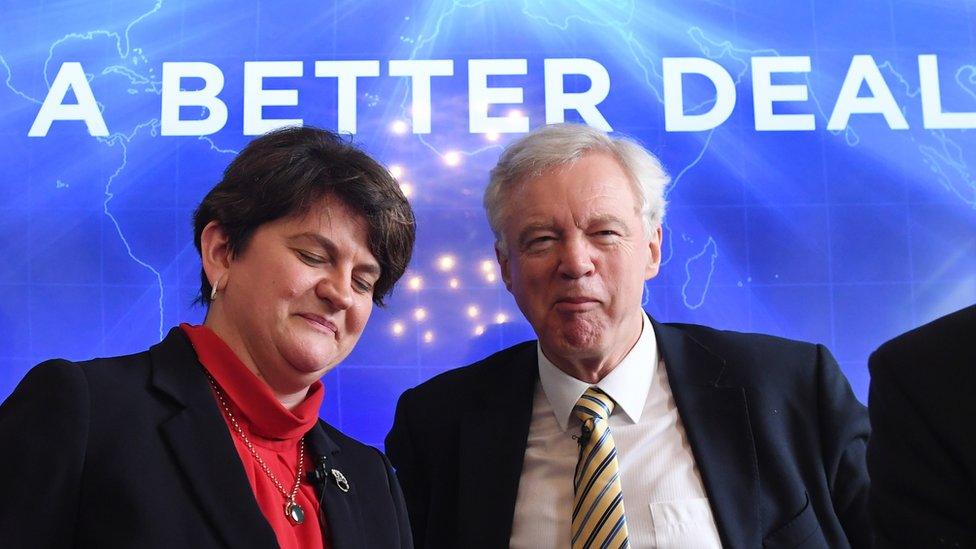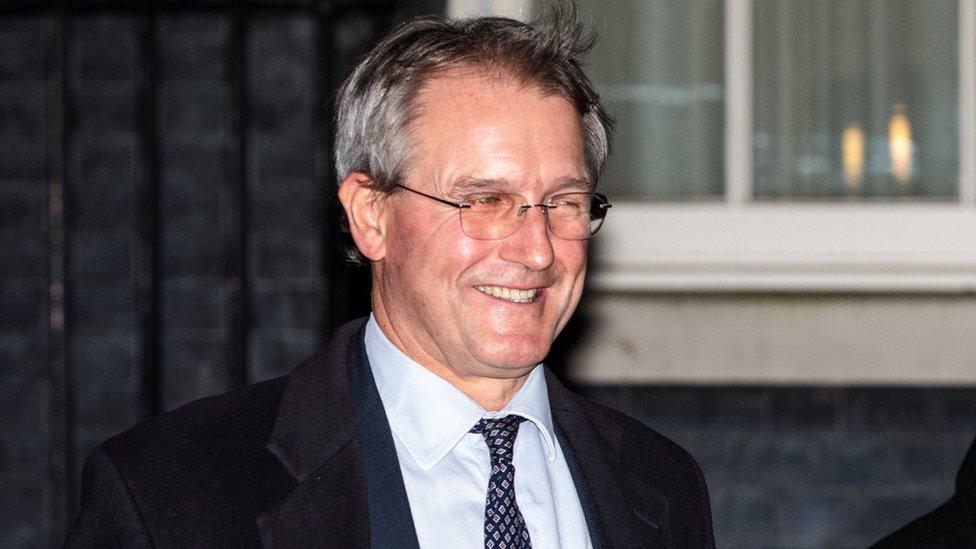Brexit vote: A way out, or just a dead end?
- Published

Can Theresa May find a way out of the current Brexit impasse?
So after Theresa May's dramatic parliamentary u-turn, is Alliance Party deputy leader Stephen Farry right to claim the Brexit bandwagon is now heading down a dead end?
According to the so-called Malthouse compromise, named after the Conservative Housing Minister Kit Malthouse, the "alternative arrangements" which UK diplomats are now tasked to explore for the border will be based on the Brexiteer blueprint "A Better Deal" published in December, external.
The document - re-launched by the DUP leader Arlene Foster and the two former Brexit Secretaries David Davis and Dominic Raab earlier this month - revisits what became known as the "max fac" approach to the border.

The Brexiteer blueprint "A Better Deal" was re-launched by DUP leader Arlene Foster and the two former Brexit Secretaries David Davis and Dominic Raab
This insists there is "no requirement for erecting new frontier or customs control points or infrastructure at the border" and committing the UK, Ireland and the EU to "develop and invest in IT systems that will improve cross border trade without the need for establishing border control infrastructure".
The argument is that "customs clearance declarations may be done at the premises of the exporter and importer or logistic service provider using available IT systems", and that in the future the authorities on both sides will be able to ensure that "technical checks for goods take place at a reasonable distance from the border, including in facilities on either side of their common land border".
Max fac approach
So what kind of a reception will Mrs May's negotiating team get for these ideas when they return to Brussels?
Advocates, like the former Northern Ireland Secretary Owen Paterson, maintain they were given a warm hearing when they travelled to the EU headquarters to present the proposals.
But sceptics will point out that when the "max fac" approach was previously floated by the UK senior EU diplomats dismissed it as "magical thinking" and it was rejected in favour of the backstop with its commitment to aligning trade regulations in Northern Ireland with those of the EU.
Brexiteers counter that the EU's blanket rejection of the technological and administrative approach didn't seem to stretch to the suggestion of an East West Irish Sea border.

Former Northern Ireland Secretary Owen Paterson said Brexiteers were given a warm hearing when they travelled to the EU headquarters to present the proposals
They viewed the EU argument that the sea border could be maintained with bar code checks on containers as an example of double standards.
Over on the UK in a Changing Europe website, the Queen's University academic Dr Katy Hayward has raised some striking points, external about what she regards as the incoherent nature of the "Better Deal" document.
No doubt in this hotly contested territory there will soon be a counter counter argument.
Parliamentary manoeuvres
What does seem unlikely, however, is that the EU will suddenly reframe its policy around proposals it has so firmly rejected.
The prospects for Mrs May returning to the Commons in time for Valentine's Day with a new deal based on the Brexiteer approach seem extremely distant (a reality she herself appeared to acknowledge in her concluding remarks to MPs).
So the latest parliamentary manoeuvres may have bought the prime minister some time, but they don't signal a route out of the current impasse.
If this is a dead end, there may come a time when both sides may need to concentrate their efforts on cutting a series of side deals to mitigate the impact of a no deal Brexit, something which MPs have opposed, but only in a symbolic, non-binding way.